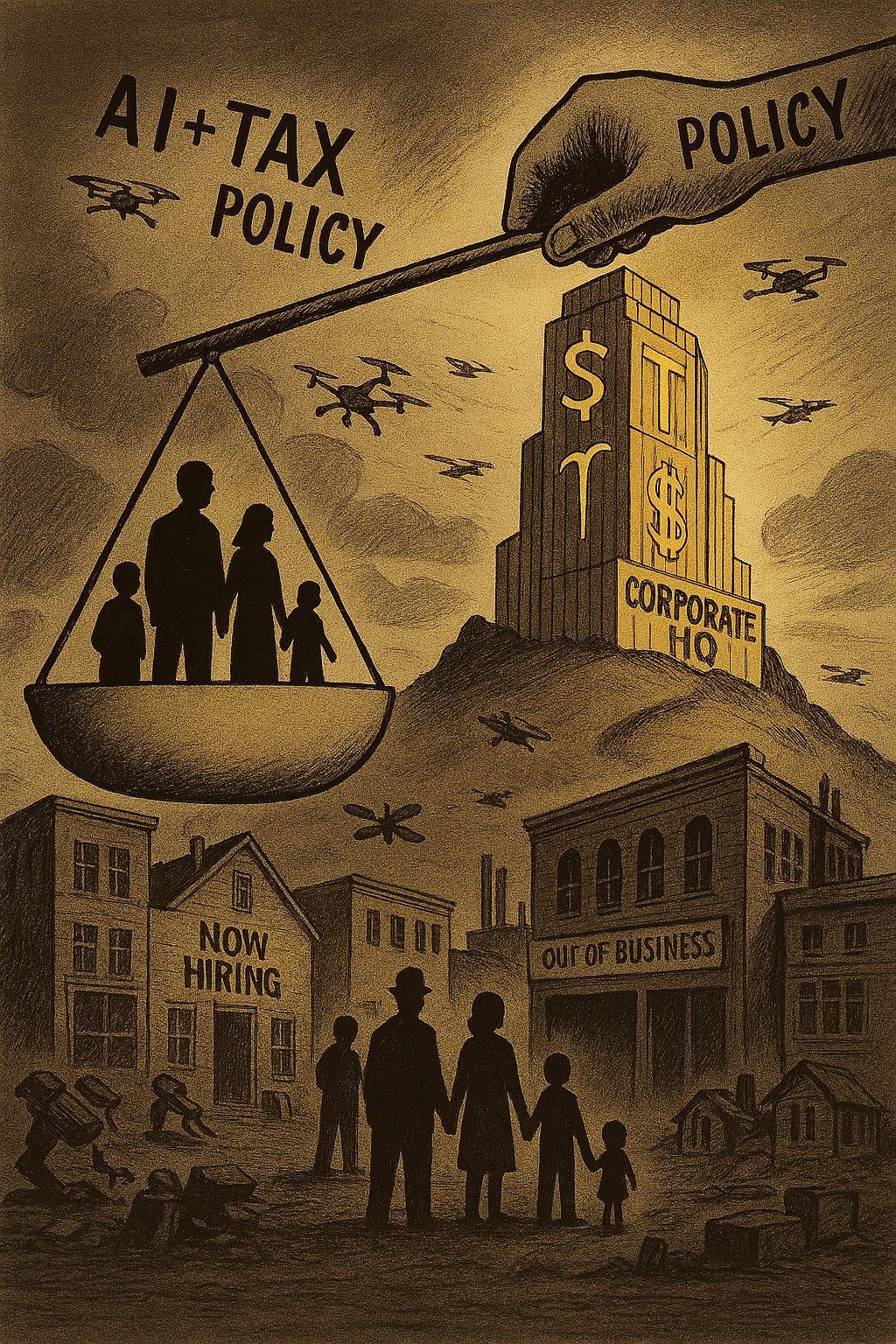Rich Get Richer
Trump's Tax Plan, Musk's AI, and the Rise of Inequality
In the quiet aftermath of market chaos and escalating trade wars, an unsettling truth emerges more clearly than ever: economic prosperity, as shaped by recent policies, is overwhelmingly flowing upward, enriching those who already have plenty while leaving the average worker behind.
Just this month, the U.S. House of Representatives pushed forward a Republican-backed budget blueprint to extend President Trump's 2017 tax cuts—a staggering $5 trillion tax reduction over the coming decade, likely ballooning the federal debt by an alarming $5.7 trillion. At first glance, policies promising tax eliminations on tips, overtime, and Social Security sound appealing to average workers. However, a deeper look reveals that these are crumbs compared to the feast prepared for corporations and America's wealthiest individuals.
Under the new tax plan, oil and gas producers receive lucrative tax incentives, and corporations can fully expense new domestic factories and capital investments. These policies seem to promise revitalized manufacturing, yet, as we've detailed previously, the factories returning home are heavily automated, requiring minimal human labor.
Elon Musk, a central figure behind these sweeping changes, has amplified automation through his Department of Government Efficiency (DOGE) role. This initiative has sparked mass layoffs across federal agencies, pushing experienced civil servants out and replacing critical human judgment with AI-driven algorithms. More than 20 federal employees recently resigned, explicitly refusing to participate in what they describe as "dismantling critical public services."
Automation advocates argue these changes bring necessary efficiency. But what happens when efficiency means fewer jobs and diminished services for those most in need?
Consider Tesla's gleaming new factories: highly advanced, "lights-out" facilities humming quietly with robotics and AI. Yes, productivity skyrockets, but workers who once built their livelihoods on factory floors find their opportunities evaporating. Meanwhile, Tesla and similar companies see soaring profits bolstered by policies explicitly favoring automation and capital investment.
Our podcast, The Future of American Jobs: AI, Automation & Economic Upheaval, highlighted precisely these dangers. When combined with Trump's tax incentives, automation disproportionately rewards asset owners—people whose incomes derive from capital investments rather than wages. Workers, meanwhile, are left facing uncertain futures without adequate support systems or retraining programs.
Economists now warn of a deepening divide. Historically, massive technological shifts, like the Industrial Revolution or globalization, initially intensified inequality until societies acted decisively with strong labor protections, training initiatives, and equitable taxation. Without such measures today, America's future could mirror those turbulent periods.
Real communities already feel the sting. Federal workers displaced by DOGE's aggressive cuts struggle to find comparable jobs. Small-town manufacturing plants, once the heart of local economies, stand empty or nearly human-free. The ripple effects extend beyond job losses, amplifying social instability and community distress.
Despite these realities, current policies lack meaningful solutions to address displacement. Musk's automation drive does not include substantial retraining initiatives, and Trump's tax plan does not meaningfully address the widening wealth gap. Without comprehensive worker-focused programs, inequality will undoubtedly intensify.
Yet, it doesn't have to be this way. Alternative paths exist that harness automation's productivity while distributing benefits more equitably. Policies like Automation Adjustment Assistance, wage insurance, and robust vocational training programs have demonstrated effectiveness in countries worldwide. America, too, can choose a path toward inclusive prosperity.
The moment calls for action. Engage with policymakers, advocate for balanced solutions, and support community efforts fighting for economic fairness. Our collective voices can demand policies ensuring automation benefits all Americans—not just those at the top.
Stay tuned as we continue this critical dialogue. Together, we can shape a future where progress uplifts every citizen, not just the privileged few.


